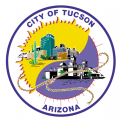Graduates from accredited nursing schools can pursue a broad range of career paths in Arizona's healthcare sector. Let's take a closer look at the major types of nursing roles throughout the state.
Nursing assistants
Arizona
We've organized a comprehensive list of Arizona nursing schools. Below you'll find information on specific nursing programs such as LPN certificates and ADN, BSN, and MSN degrees. You'll also find a profile of nursing education and careers in each major Arizona city.
Arizona nursing programs and careers
City-specific information
More than two dozen institutions in the Phoenix metropolitan area offer nursing-related programs. Before committing to a nursing school, prospective students should understand the job scope of each nursing role, the education pathways to licensure, and the employment opportunities that await local graduates.
Arizona is home to more than 75,000 nursing professionals across a broad range of roles, including registered nurse (RN), licensed practical nurse (LPN), and certified nursing assistant (CNA). Hundreds of these professionals work in Tempe, Arizona’s eighth-largest city. Many of Tempe’s nurses earned their degree or certificate at a local nursing school. The most prominent local option is Arizona State University, of course, but accredited schools like Brookline College and University of Phoenix also have nearby campuses.
If you are interested in joining the nursing profession, you might find yourself bewildered by the alphabet soup of options that present themselves. Below we clarify and explain each of these distinct nursing roles.
Scottsdale is home to one of the most revered institutions of American medicine, the Mayo Clinic. Indeed, Scottsdale’s nursing professionals have a broad range of high-quality employers from which to choose. Aspiring nurses must understand the different roles that these employers are seeking to fill, including responsibilities, educational requirements, and compensation.
Mesa’s nursing profession has several different roles. Each nursing role has a unique job scope and a tailored set of education requirements. In this article, we profile the major nursing roles and their education pathways.
Nurses are an integral part of Glendale’s healthcare landscape, from schools to hospitals to care facilities. There are several distinct roles within the nursing profession. Understanding each role will help prospective nurses to select the best pathway for their education and career.
Providing direct physical care to those in need is one of life’s most basic interactions. The nursing profession, therefore, has a timeless quality to it. For those interesting in joining the nursing workforce in Gilbert, Arizona, the first step is understanding the three major nursing roles.
Certified nursing assistant (CNA)
There are several distinct nursing roles. Each nursing role carries out different duties and thus requires a unique set of qualifications. For those interested in joining the nursing profession, we’ve profiled each role below including the prerequisites for licensure.
The most junior nursing role is the certified nursing assistant (CNA). CNAs help patients with essential tasks of daily living like feeding, washing, and exercising. To gain CNA licensure in Arizona, one must complete a recognized in- or out-of-state program and pass the state certification examinations.
The nursing profession is not limited to dispensing medication and performing procedures. Many nurses are interested in going beyond the bedside to pursue related fields, such as nursing administration, nursing education, and family practice nursing. Others seek employment in advanced patient care roles like nurse anesthetist, nurse midwife, and nurse practitioner. Nurses interested in these specialized careers will find that a master of science in nursing (MSN) degree positions them well.
For our 2024 rankings of prelicensure BSN programs, the research team at Nursing Schools Almanac compiled an extensive database of student performance on the National Council Licensure Examination for Registered Nurses (NCLEX-RN). Aspiring registered nurses in the United States must pass this examination before they may commence practice. Thus, student performance on the NCLEX-RN exam provides an excellent benchmark for comparing the relative quality of bachelor’s degree programs.












